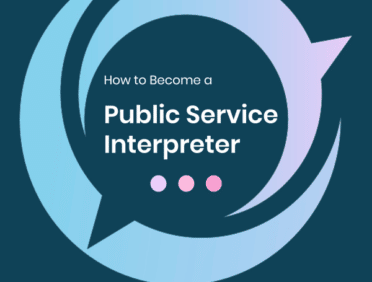What qualifications do I need to be a interpreter?
In order to pursue work as an interpreter, it is essential to obtain a relevant interpreting qualification. Without proper certification, it is not appropriate to claim that your skills are at a professional level. This could lead to providing subpar service and potentially putting individuals at risk.
There are numerous qualifications and courses available in the market for aspiring interpreters. When considering a qualification, the first aspect to look into is accreditation. This ensures that the course is regulated by the UK government through a department called Ofqual, which serves as the Government Regulator of Qualifications. All accredited qualifications are listed in the Ofqual Register of Regulated Qualifications, which can be accessed online. By searching for the qualification title, you can determine if it is accredited and find it in the list.
There are several accredited qualifications available today. In this section, we will discuss the five most popular qualifications recognized by the industry, language service providers, and interpreting clients.
Level 1 or 2 Award/Certificate in Community Interpreting
These qualifications represent the lowest levels of certification. Level 1 is a brief qualification that allows for voluntary or charity work and neither the Level 1 Award in Interpreting or the Level 2 Certificate in Community Interpreting provides sufficient content for paid interpreting assignments because they typically do not assess interpreting skills comprehensively.
While some interpreters with Levels 1 or 2 may find limited paid work opportunities, the scope is restricted and becoming more limited, which is extremely encouraging due to the level of risk these qualifications present to service users.
- Suitable for: beginners
- Requirements: Fluency in two languages, including English. Online and offline courses are available.
- Study time: Approximately 30 hours for Level 1 and 40-50 hours for Level 2.
- Best for: charity or volunteer work.
Level 3 Certificate in Community Interpreting
The Level 3 Certificate in Community Interpreting is the true entry-level qualification for paid interpreting, and many professional interpreters begin their careers with this certification. Suitable for paid work, particularly in public service sectors such as health, mental health, social services, welfare benefits, immigration, education, housing, local government, and some low-level legal work.
Suitable for beginners or those with some experience. The Level 3 Certificate includes comprehensive content that covers various aspects of interpreting, from the role of an interpreter to assignment preparation.
- Suitable for: beginners and intermediate
- Requirements: Competency in two languages, including English, and the ability to read English. Online and offline courses are available (Note: It is not a prerequisite of passing Levels 1 or 2 to enroll in Level 3).
- Study time: Approximately 60-80 hours.
- Best for: starting a career as a paid interpreter.
Level 4 Certificate in Community Interpreting
While Level 4 exists, it is not recommended due to the increased study time and cost, and the fact that it doesn’t qualify you for any additional opportunities than accessible with a Level 3 Certificate.
Work opportunities and content are similar to Level 3, with a potential addition of a legal specialisation.
- Suitable for: beginners or intermediate learners.
- Requirements: Competency in two languages, including English, and the ability to read English. Online and offline courses are available.
- Study time: Approximately 115 hours.
- Best for: paid interpreting work, but not significantly different from Level 3.
Level 6 Diploma in Public Service Interpreting (DPSI)
The highest-level qualification for interpreters is the Level 6 Diploma in Public Service Interpreting, also known as DPSI.
This qualification is extremely challenging and equivalent to a degree. It is recommended for individuals who already possess at least a Level 3 Certificate in Community Interpreting or have paid interpreting experience.
Work opportunities include all areas covered by Level 3,along with legal settings such as immigration, courts, police, and prisons.
The content includes Level 3 topics, as well as a focus on the legal specialisation and additional skills like simultaneous interpreting, sight translation into English, and written translation to and from English.
- Suitable for: advanced and experienced interpreters.
- Requirements: vary, with some courses accepting advanced language proficiency in two languages, including English, while others require a Level 3 interpreting qualification or above due to higher failure rates.
The exam assesses practical skills, including two-way (consecutive) interpreting, whispered simultaneous interpreting, sight translation to and from English, and written translation to and from English. A thorough understanding of the legal specialization is also necessary.
- Study time: Approximately 220-300 hours.
- Best for: legal interpreting work. There are three different DPSI specialisms available: law (offered by multiple providers), health, and local government (the latter two are, to the author’s knowledge, only provided by CIOL).
Note: If intending to pursue legal work, it is recommended to choose the law option, as it covers essential legal knowledge not included in the other two qualifications.
As demonstrated, there are varying levels of qualifications for interpreters depending on their career stage and existing skills. It is important to choose the appropriate qualification based on your proficiency, experience, and desired field of interpreting work. Obtaining a recognized interpreting qualification enhances your credibility, professionalism, and opportunities for paid work in the industry.
To download a .pdf of this blog, please click here












